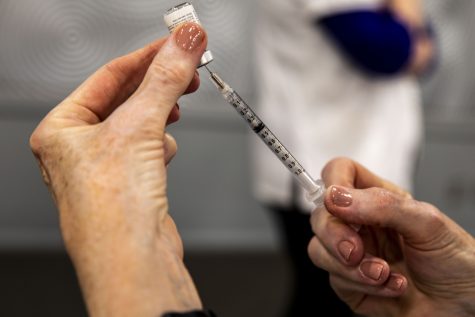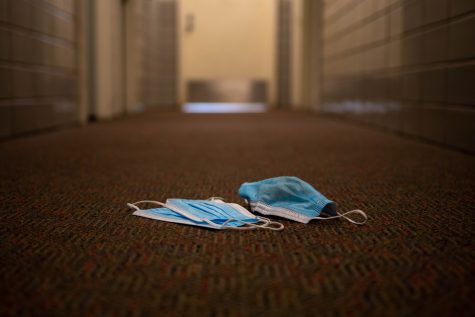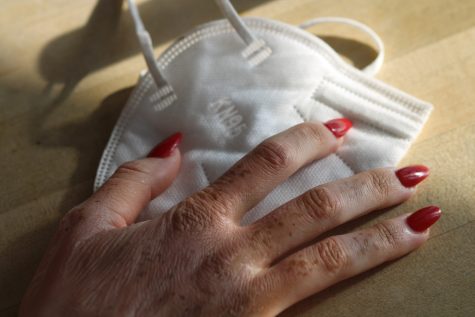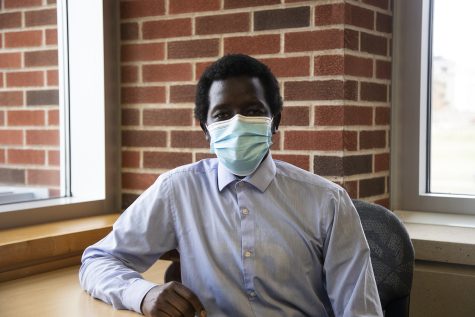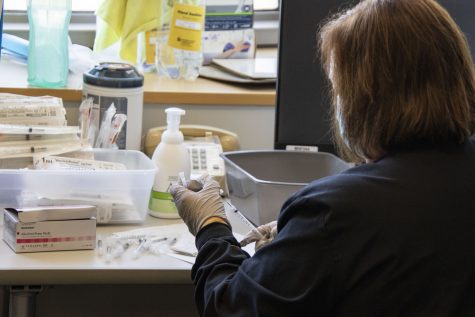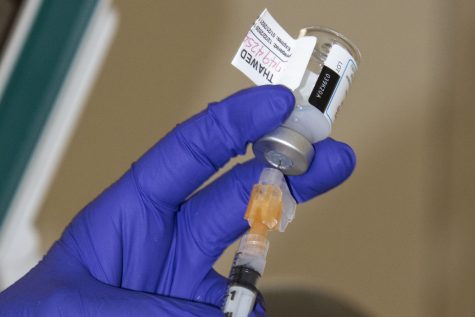University of Iowa Hospitals and Clinics launches ‘virtual hospital’ to treat COVID-19 patients
University of Iowa Hospitals and Clinics as seen on Sept. 17, 2018.
April 3, 2020
University of Iowa Health Care launched beginning a “virtual hospital” to treat COVID-19 patients at home who don’t need to be hospitalized.
“A home treatment team has created a virtual hospital for our patients so that they can get the best care at the best place at the right time,” UI Hospitals and Clinics Chief Medical Officer Theresa Brennan said during a press conference Friday. “The goal of this program is for us to follow and provide treatment to patients who are outpatients in their home to hopefully keep them from having to come to the hospital.”
A team of medical specialists, called the Home Treatment Team, touches base daily with a patient via phone and the patient uses a delivered kit to self-monitor their symptoms.
Around 80 percent of those who contract COVID-19 will not need hospitalization, Brennan said, so having medical professionals provide more care remotely will help conserve the number of beds available for patients in critical condition and allows the medical team to quickly intervene if symptoms worsen.
Seventy-six patients have used the program. Of those, 35 have recovered, 38 are currently being monitored, and three transferred to the hospital for more intensive care, according to a news release from UIHC.
After first being assessed by a nurse over the phone, the patient would be delivered the kit, which includes a blood pressure cuff and a pulse oximeter (to measure blood oxygen and heart rate), along with instructions for self-isolation and which symptoms to monitor. The patient logs their vital signs — temperature, blood pressure, and oxygen levels — and is called daily by a health-care provider.
The new initiative expands current telehealth resources UIHC was deploying that diagnosed patients with COVID-19.
Brennan said the system has also given medical professionals more insight into how COVID-19 affects people who have the disease.
Internal medicine Clinical Assistant Professor Bradley Manning said in the release patients should drink enough fluids to ensure a light-yellow colored urine. Medical professionals have observed that the disease causes an unpleasant taste, he said. That symptom makes it difficult for patients eat or drink enough, which can lead to dehydration.
“Based on what we have seen in our patients, staying properly hydrated in the first few days of the illness really seems to be important to a patient’s ability to fight the disease and lower the risk of hospitalization,” Manning said. “The altered sense of taste is a really dramatic symptom and does make it very unpleasant to eat or drink. So, we really emphasize to patients the importance of staying hydrated.”






